How Seo And Adwords Work Together?
Hey there! Are you curious about how SEO and AdWords work together? Well, look no further! In this article, we’ll explore how these two powerful digital marketing strategies join forces to boost your online visibility and drive more traffic to your website. So, let’s dive in and discover the dynamic duo of SEO and AdWords!
Picture this: you’re searching for a cool new pair of sneakers online. You type in your search query, hit enter, and voila! The search engine results page (SERP) pops up, showcasing a mix of organic search results and paid ads. That’s where SEO and AdWords come into play.
SEO, or Search Engine Optimization, focuses on optimizing your website so it appears organically in search results. On the other hand, AdWords (which is now called Google Ads) is Google’s online advertising platform that allows businesses to display paid ads in search results and other relevant websites. Together, they form a powerful duo that maximizes your online presence and drives targeted traffic to your website.
In the next paragraphs, we’ll explore how these two strategies complement each other and work in harmony to enhance your online visibility. So, grab a snack, sit back, and get ready to learn about the fascinating world of SEO and AdWords!
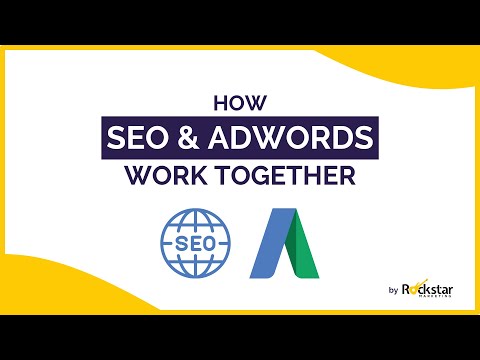
How SEO and Adwords Work Together: The Ultimate Guide
1. Understanding the Relationship Between SEO and Adwords
SEO and Adwords are two essential components of digital marketing, and when used together strategically, they can create a powerful online presence. SEO, or search engine optimization, focuses on optimizing websites to rank higher in organic search results. Adwords, on the other hand, is a pay-per-click advertising platform that allows businesses to place ads on search engine results pages. While SEO focuses on long-term organic visibility, Adwords offers immediate visibility through paid ads. When used in tandem, SEO and Adwords can enhance each other’s effectiveness and drive more targeted traffic to your website.
To illustrate how SEO and Adwords work together, let’s consider an example. Suppose you have a website that sells eco-friendly products, and you want to increase your online visibility. By implementing SEO strategies, such as optimizing your website’s content with relevant keywords, improving site speed, and building high-quality backlinks, you can improve your organic rankings in search engine results. However, even with an effective SEO strategy, it takes time to climb the rankings. This is where Adwords comes in. By running targeted ads related to your eco-friendly products, you can immediately appear on the search engine results page for relevant search queries. These ads can drive traffic to your website while you work on improving your organic rankings through SEO efforts.
2. Benefits of Integrating SEO and Adwords
There are several benefits to integrating SEO and Adwords into your digital marketing strategy:
1. Increased Visibility: By combining SEO and Adwords, you can achieve maximum visibility on search engine results pages. Your website will not only rank organically but also appear in the paid ads section, allowing you to dominate the search results and increase the chances of users clicking on your website.
2. Improved Keyword Insights: Adwords provides valuable keyword insights that can be utilized to optimize your SEO strategy. The data from Adwords can help you identify high-performing keywords that generate a high click-through rate and conversions. You can then incorporate these keywords into your organic content strategy to improve your SEO efforts.
3. Enhanced Conversion Rate: Studies have shown that combining SEO and Adwords can lead to higher conversion rates. When users see a website ranked both organically and in the paid ads section, they perceive it as more credible and trustworthy. This increased trust can result in a higher likelihood of users clicking on your website and converting into customers.
3. Tips for Maximizing the Synergy Between SEO and Adwords
To make the most out of the synergy between SEO and Adwords, consider the following tips:
1. Keyword Alignment: Ensure that there is consistency between the keywords you target in your SEO strategy and the keywords you use in your Adwords campaigns. This alignment will ensure that your website provides a cohesive and relevant user experience, resulting in higher click-through rates and conversions.
2. Use Adwords Data to Inform SEO Strategy: Analyze the data from your Adwords campaigns to identify high-performing keywords, user behavior patterns, and demographic insights. Use this information to refine your SEO strategy and create content that aligns with the interests and preferences of your target audience.
3. A/B Testing: Experiment with different ad copy and landing pages in your Adwords campaigns to understand what resonates best with your audience. Once you identify winning variations, incorporate them into your organic content strategy to improve the conversion rate of your SEO efforts.
4. Optimize Landing Pages: Ensure that your landing pages are optimized for both SEO and Adwords. Provide a seamless user experience by aligning the messaging and design of your landing pages with your ad copy. This consistency will reinforce your credibility and increase the likelihood of users converting.
5. Leverage Remarketing: Adwords allows you to target users who have previously visited your website but did not convert. By showing them ads relevant to their initial search or browsing behavior, you can encourage them to revisit your website and complete their purchase. Integrating remarketing campaigns with your SEO strategy can lead to higher conversion rates and ROI.
In conclusion, SEO and Adwords are powerful marketing tools that, when used together strategically, can significantly enhance your online presence and drive targeted traffic to your website. By aligning keywords, leveraging data insights, and creating a cohesive user experience, you can maximize the synergy between SEO and Adwords and achieve greater visibility and conversions. Incorporate these tips into your marketing strategy to unlock the full potential of SEO and Adwords and take your business to new heights.
Key Takeaways: How SEO and AdWords Work Together
- SEO and AdWords are both important for online marketing.
- SEO focuses on improving organic search rankings, while AdWords allows businesses to pay for advertising space.
- Combining SEO and AdWords can lead to better visibility and higher click-through rates.
- AdWords can provide valuable keyword data that can inform SEO strategies.
- Using AdWords to test keywords and landing pages can help optimize SEO efforts.
Frequently Asked Questions
Here are answers to some common questions about how SEO and Adwords work together:
1. How does SEO help Adwords campaigns?
SEO and Adwords complement each other by targeting different areas of search engine results. While Adwords focuses on paid advertising, SEO focuses on organic search results. By optimizing your website for SEO, you can improve your organic rankings and increase your visibility in search results. This can provide a boost to your Adwords campaigns by driving more qualified traffic to your website.
Furthermore, SEO can help you identify the most relevant keywords for your target audience. By analyzing organic search queries and user behavior, you can uncover valuable insights that can inform your Adwords strategy. This synergy between SEO and Adwords allows you to maximize your online presence and get the best results from your digital marketing efforts.
2. Can Adwords help improve SEO rankings?
While Adwords campaigns do not have a direct impact on SEO rankings, they can indirectly contribute to it. Adwords can help drive more traffic to your website, which can increase user engagement and signal to search engines that your website is relevant and valuable to users. This increased engagement can lead to higher organic rankings over time.
In addition, Adwords campaigns can help you test the performance of different keywords, ad copies, and landing pages. By analyzing the data and insights from your Adwords campaigns, you can optimize your website content and structure to align with what resonates best with your target audience. This optimization can have a positive impact on your SEO rankings and improve the overall effectiveness of your digital marketing strategy.
3. How can I integrate SEO and Adwords effectively?
Effective integration of SEO and Adwords involves aligning your keyword research, optimizing your website for both organic and paid search, and analyzing data to refine your strategies. Start by conducting comprehensive keyword research to identify keywords that are relevant to your target audience and have high search volumes.
Next, optimize your website’s on-page elements, such as title tags, meta descriptions, and heading tags, with your targeted keywords. This will help search engines understand the relevance of your website to specific search queries. For Adwords, create compelling ad copies that incorporate your targeted keywords and direct users to relevant landing pages.
Finally, regularly analyze data from both SEO and Adwords campaigns to identify opportunities for improvement. Use tools like Google Analytics to monitor website traffic, conversion rates, and keyword performance. By consistently optimizing your keywords, content, and landing pages based on data insights, you can achieve a seamless integration of SEO and Adwords for maximum impact.
4. What are the advantages of combining SEO and Adwords?
Combining SEO and Adwords can offer several advantages to your digital marketing strategy. It allows you to cover both the organic and paid search channels, ensuring visibility on search engine results pages across different positions. This increases your chances of capturing clicks and driving traffic to your website.
Additionally, SEO and Adwords offer different types of data and insights. By leveraging both, you can gain a more comprehensive understanding of your target audience’s search behavior, preferences, and intent. This knowledge can inform your overall marketing strategy, including content creation and website optimization, leading to better user experiences and higher conversion rates.
5. How can I track the performance of SEO and Adwords together?
To track the performance of SEO and Adwords together, you can utilize various tools and metrics. Start by setting up conversion tracking for your Adwords campaigns using Google Analytics. This will allow you to attribute conversions and track the impact of your paid ads on website goals and objectives.
For SEO, regularly monitor rankings for your targeted keywords using tools like Google Search Console or third-party SEO platforms. Analyze the organic traffic data, click-through rates, and engagement metrics to understand the effectiveness of your SEO efforts.
By comparing the performance data from both SEO and Adwords campaigns, you can gain insights into the overall effectiveness of your digital marketing strategy and identify areas for improvement. This holistic approach to tracking will help you optimize your campaigns and achieve better results.
How SEO and AdWords Work Together? (You Must Watch This) | SEO Tips
Summary
SEO and AdWords are two strategies that work together to improve a website’s visibility online. SEO focuses on optimizing the website for search engines, while AdWords is a paid advertising platform.
By using SEO, you can make your website more friendly to search engines, helping it rank higher in search results. AdWords, on the other hand, allows you to place ads on search engine result pages, driving targeted traffic to your website.
When used together, SEO and AdWords can complement each other, maximizing your website’s visibility and driving more traffic. SEO helps improve organic search rankings, while AdWords provides immediate visibility through paid advertisements.
In conclusion, SEO and AdWords are powerful tools that, when used together, can greatly benefit your website’s online presence and help you reach your target audience effectively. So, consider incorporating both strategies into your marketing plan to achieve the best results.
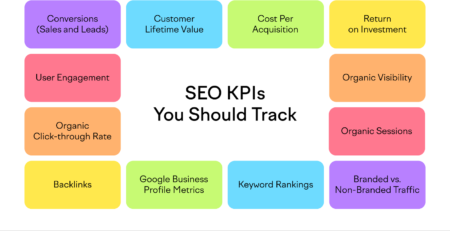
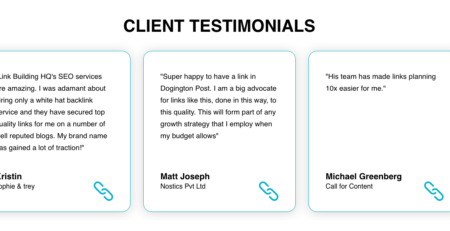
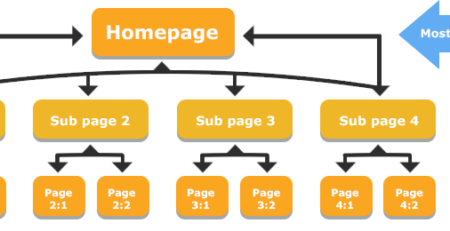
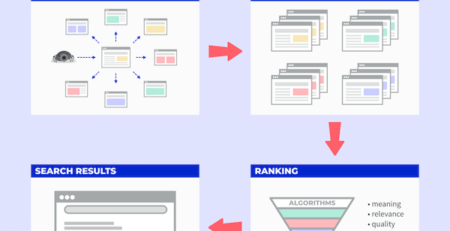
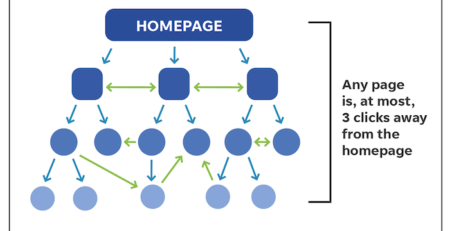
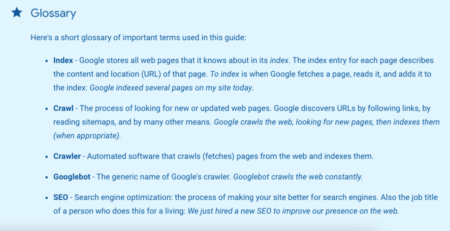
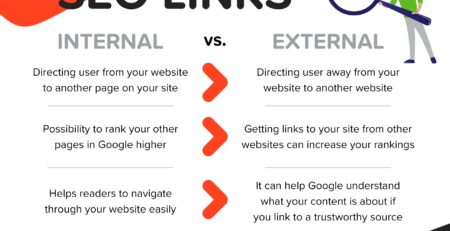

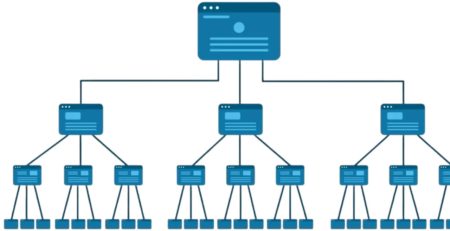
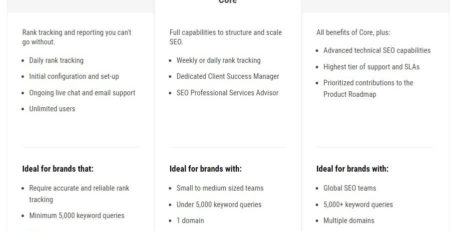
Leave a Reply